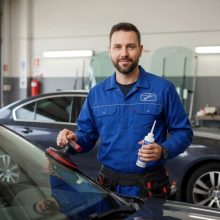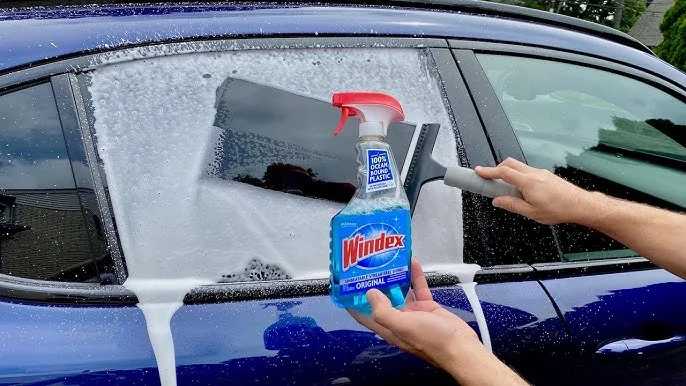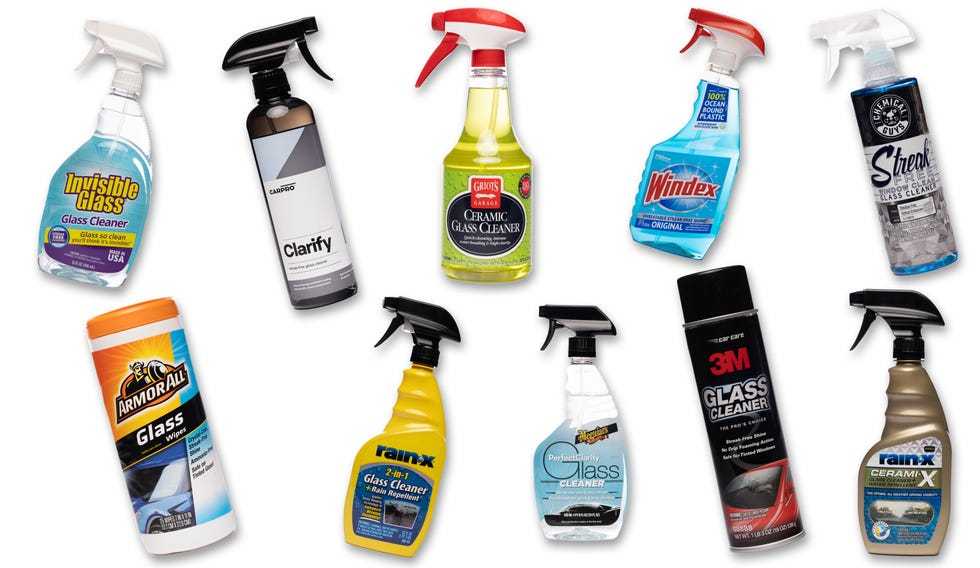The best car window tint for UV protection effectively blocks out harmful ultraviolet rays while keeping your vehicle cool and comfortable. Looking for a solution that protects your skin and preserves your car’s interior? High-quality ceramic or metallic tints are your best bet—they offer superior UV filtering without sacrificing visibility.
In summary, the top car window tints for UV protection are those made from ceramic or metallic films, providing maximum UV blocking with durability and clarity. Choosing the right tint can safeguard your skin and interior, all while enhancing your driving experience.
Driving can expose you to harmful UV rays that cause skin damage and interior fading, but a good window tint can serve as a shield. Finding the best tint involves understanding your needs—such as UV blocking, heat reduction, and visibility. With many options available, selecting a high-quality film designed specifically for UV protection ensures your vehicle remains cool, safe, and stylish. Whether you prioritize ceramic technology or metallic options, the right tint can make a significant difference in your driving comfort and safety.
Best Car Window Tint for UV Protection
Understanding UV Rays and Their Effects
UV rays are part of the sunlight that reaches the earth. They are invisible but can harm your skin and your car’s interior. Extended exposure to UV rays can cause skin damage and increase the risk of skin cancer. It also causes your car’s dashboard, seats, and other interior parts to fade or crack over time.
Choosing the right window tint helps block these harmful rays. It can reduce UV transmission by up to 99%, offering significant protection for you and your vehicle. Understanding how different tints work helps you select the best option for UV safety.
Types of Car Window Tints Suitable for UV Protection
There are several types of window tint films, each with unique features. Here are the most effective for UV protection:
- Dyed Window Tints: These contain dye layers that absorb UV rays. They are affordable but may fade over time.
- Metalized Window Tints: These have tiny metallic particles that reflect UV and heat away. They provide excellent UV blocking but can interfere with electronic signals.
- Carbon Window Tints: Made with carbon particles, they block UV rays effectively without interfering with signals. They are more durable than dyed tints.
- Ceramic Window Tints: The top-tier option, containing ceramic particles that block UV rays and heat without affecting electronics. They are highly effective and long-lasting but come at a higher price.
Each type offers different levels of UV protection, durability, and cost. Selecting the right one depends on your budget and specific needs.
How Window Tint Darkness Affects UV Protection
Many people think darker tint shades provide better UV protection. However, the darkness mainly influences heat reduction and privacy. UV-blocking capabilities are primarily determined by the tint material, not darkness level.
Most high-quality window films can block up to 99% of UV rays, regardless of their tint shade. For optimal UV protection, focus on the film’s technical specifications rather than just darkness. Look for films labeled with UV protection ratings to ensure they meet high standards.
Key Features to Look for in UV Protective Window Tints
When shopping for the best UV protection, consider these features:
- High UV Blockage: Choose films that block at least 99% of UV rays for maximum protection.
- Infrared Heat Rejection: Some tints also block infrared rays, helping keep your car cooler.
- Durability and Fade Resistance: Look for films with a long-lasting color and clarity that won’t fade over time.
- Legal Tint Limits: Ensure your tint complies with your state’s laws on visible light transmission.
Opting for ceramic or carbon films often guarantees these essential features.
Benefits of Using UV Protecting Car Window Tints
Installing UV protective tint films provides numerous benefits:
- Protects Your Skin: Blocks harmful UV rays from reaching your skin during drives.
- Preserves Interior Condition: Prevents fading and cracking of upholstery and dashboard.
- Reduces Glare: Minimizes eye strain caused by sunlight glare.
- Increases Comfort: Keeps the interior cooler and more comfortable, especially during hot days.
- Enhances Privacy and Security: Tints make it harder for outsiders to see inside your vehicle.
Investing in quality UV protection improves your driving experience and prolongs your vehicle’s lifespan.
Top Brands and Their UV Protection Capabilities
Several brands are known for their high-quality UV blocking window films:
| Brand | Type of Tint | UV Blocking Percentage | Additional Features |
|---|---|---|---|
| 3M | Ceramic, Metalized | Up to 99% | Heat rejection, fade resistance |
| LUMAR | Carbon, Ceramic | Up to 99% | Long-lasting, non-interfering with electronics |
| Huper Optik | Ceramic | Near complete UV blockage | Premium quality, heat management |
Choosing reputable brands ensures you get reliable UV protection alongside durability and performance.
Installation Tips for Maximum UV Protection
Proper installation maximizes the effectiveness of your UV tint:
- Professional Installation: Hire experienced technicians for precise application.
- Clean Windows Thoroughly: Remove dirt and oils before tinting to prevent bubbles and peeling.
- Follow Curing Instructions: Avoid rolling down windows immediately; let the film set as recommended.
- Check for Air Bubbles: Ensure no air pockets are trapped, as they can reduce UV protection.
Correct installation ensures your tint film performs optimally and lasts longer.
Legal Considerations and Regulations
Many regions have laws dictating tint darkness and reflectivity. It’s crucial to verify local regulations before choosing a tint shade. Non-compliance can result in fines or required removal.
Typically, front side windows must allow more light transmission than rear windows. Look for legal tint percentages and ensure your film meets these standards.
Cost and Value Comparison
UV protective tint prices vary depending on the material and brand:
- Dyed Tints: $50 – $150 – affordable but less durable.
- Metalized Tints: $150 – $300 – good UV protection with some signal interference.
- Carbon Tints: $200 – $400 – reliable and fade-resistant.
- Ceramic Tints: $300 – $600 – the most effective with long-lasting performance.
While ceramic options are more costly, their durability and superior UV shielding offer the best value over time.
Maintenance and Care for UV Protective Window Films
Proper care extends the life of your tint film:
- Avoid abrasive cleaners: Use soft cloths and mild soap.
- Do not scrub vigorously: Gentle cleaning prevents damage.
- Limit window rolling: Wait for the film to cure before adjusting windows.
- Regular inspections: Look for bubbles or peeling and get repairs promptly.
Following these tips maintains clarity and UV protection for years.
Related Topics for Consideration
Other aspects of vehicle protection include:
- UV Protective Car Coatings: Additional layers that block UV rays outside the vehicle.
- Sunshades and Interior Covers: Extra protection for dashboard and seats when parked.
- UV Safety Accessories: Clothing and sprays that enhance UV safety while driving or outdoors.
Exploring these options complements your window tint and optimizes protection.
This detailed overview highlights the importance of selecting the best car window tint for UV protection. High-quality films like ceramic and carbon not only block nearly all UV rays but also improve your overall driving comfort and protect your vehicle’s interior. Paying attention to features, legal requirements, and proper installation guarantees you get the most from your investment.
How to Choose the RIGHT Window Tint | Don't Make A Mistake
Frequently Asked Questions
How does UV protection in window tint benefit the health of vehicle occupants?
UV-protective window tints block harmful ultraviolet rays from entering your vehicle, reducing the risk of skin damage and skin cancer for occupants. They also help prevent eye strain caused by intense sunlight and create a more comfortable driving environment, especially during long trips or in sunny regions.
What materials are most effective for blocking UV rays in car window tints?
Polyester-based films with special UV-blocking coatings are highly effective at filtering out UV rays. Metalized or ceramic tints also provide excellent UV protection, with ceramic being a top choice due to its ability to block UV and infrared rays without interfering with electronic signals.
Are there legal restrictions on the tint darkness for UV protection?
Yes, many regions have laws regulating the allowable tint darkness to ensure driver visibility and safety. Typically, UV protection comes from clear or lightly tinted films that still comply with local regulations. Always check your area’s specific laws before choosing a tint level to ensure compliance.
Can UV protection window tints help in reducing interior heat and fading?
Yes, window tints designed for UV protection also block infrared rays, which contribute to interior heat. This helps keep your vehicle cooler and reduces fading of upholstery, dashboard, and other interior materials caused by prolonged sun exposure.
How long do UV-protective window tints typically last?
High-quality UV-protective tints usually last between 5 to 10 years, depending on the film type and maintenance. Ceramic and high-end films tend to maintain their effectiveness longer, resisting discoloration and bubbling better than cheaper alternatives.
Final Thoughts
The best car window tint for UV protection offers reliable shielding against harmful rays while maintaining visibility. It reduces heat buildup inside the vehicle and protects skin from UV damage. Choosing the right tint enhances comfort and safety on the road. Prioritize tints that meet local regulations for optimal results.



